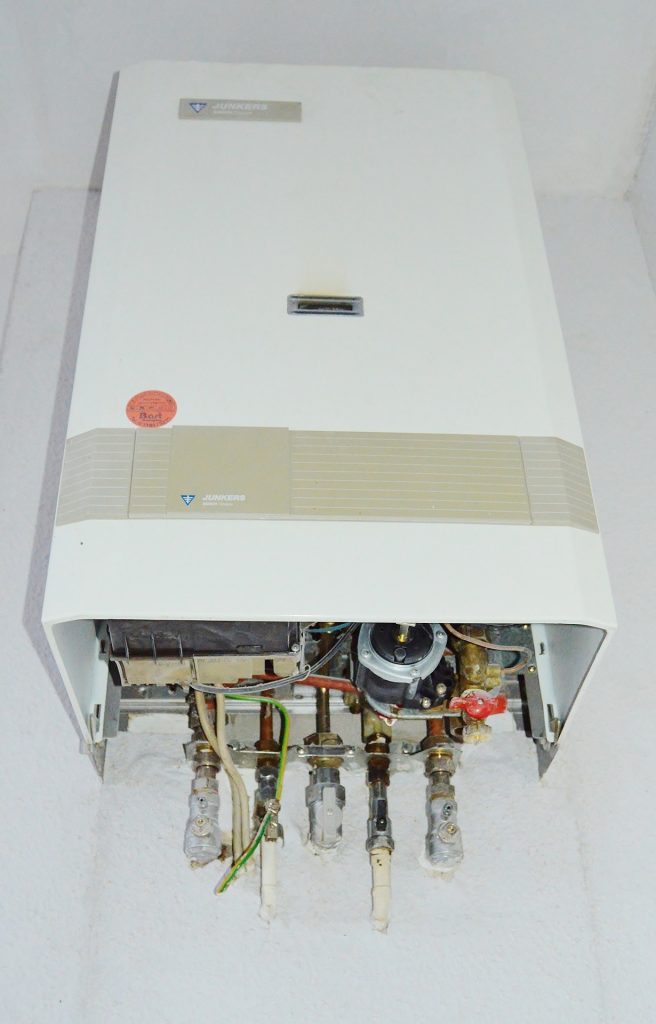Everyone loves a hot shower when the mercury drops. The hot water from the heater is a good cleaning agent for dirty dishes and clothes. But when the electric bill pops, everyone scratches their head. When the old geyser conks out, your instinct tells you to call a heating repair services provider. But with numerous breakdowns and parts replacement, another repair will be uneconomical. Besides, it does not save energy anymore. A new water heater will spare you from the hiccups and save money. It is one of the most important appliances in the house, so be sure to pick the right one to suit your needs. Consider the type, size, cost, and energy efficiency. Moreover, it is also important to ensure that you reach out to a professional plumber to ensure that your new water heater is installed correctly. You can learn more about how to ensure that your water heater is installed safely and professionally by taking a look at some of the helpful resources on the Summers Plumbing Heating and Cooling website here: www.summersphc.com/
Table of Contents
Types of Water Heaters
Think about your family’s size and the water requirement of your property for the best water heater.
Tankless Water Heaters

Also called Demand, Instant or Instantaneous heaters do not use a storage tank and provides hot water when needed. No waiting for the storage tank to be filled. You just turn on the hot water tap for a constant supply of hot water. No standby energy is lost associated with storage water heaters, hence savings in your electric bill.
Sometimes it cannot supply hot water for simultaneous usage in the household. For instance, running the washing machine and the dishwasher at the same will stretch the limits of the system. As a solution, you can install two or more tankless water heaters connected in parallel for washing clothes or dishes and for taking a shower.
Storage Water Heaters
Storage water heaters are the most prevalent heaters installed in homes. A single-family storage water heater can keep 20 to 60 gallons of hot water in the tank. It works on fuel sources like natural gas, propane, fuel oil, and electricity. It carries a standby heat loss for keeping the water hot when not in use.
Heat Pump Water Heaters
A heat pump water heater can provide hot water, hot and cold air to the indoors. Heat is transferred from one place to another using electricity rather than directly generating heat. It is more energy-efficient than storage water heaters.
The heat pump water heater should be located in a spot where the temperature should remain in the 40º–90ºF (4.4º–32.2ºC) range all year and at least 1,000 cubic feet (28.3 cubic meters) of air space around the water heater. It will operate efficiently in a space with excessive heat.
The capacity of Water Heater Tanks
Tanks of water heaters are categorized by the quantity of water it keeps in gallons. Determine the average amount of hot water you’ll need to keep it free-flowing.
Also, consider the recovery rate, the gallons of water it can heat per hour while refilling the storage tanks. You’ll need a high recovery rate for a family with great demand.
Check out this guide to fit the storage tank you need.
| FUEL SOURCE | FAMILY SIZE | MINIMUM GALLON CAPACITY |
| Electric | 1 to 2 | 30 gallons |
| 2 to 3 | 40 gallons | |
| 2 to 4 | 50 gallons | |
| Family of 5 and over | 80 gallons | |
| Gas | 1 to 2 | 30 gallons |
| 2 to 3 | 40 gallons | |
| 3 to 4 | 40 gallons | |
| Family of 5 and over | 50 gallons |
Energy Efficiency
The energy factor (EF) is used to determine the energy efficiency of a water heater. EF implies a water heater’s overall energy efficiency based on the quantity of hot water generated per unit of fuel used up on a normal day. This includes:
- Recovery efficiency – is determined by the amount of water per hour heated to a preset temperature.
- Standby losses are the amount of energy used per hour to maintain the water temperature when the hot water is not used.
- Cycling losses – the loss of heat as the water circulates through a water heater tank and/or inlet and outlet pipes.
The higher the EF, the more effective the model of the water heater. The more efficient models are on the high-end. They are built to be environmentally friendly and save you money in the long term. The manufacturer’s manual specifies the EF of the water heater.
Model Comparison
The information on the EnergyGuide label lists the model’s annual operating cost. Along with the EF, you can now compare models to come up with a fact-based decision. For instance:
| MODELS | PRICE OF WATER HEATER | EF | ANNUAL OPERATING COST |
| Model A | $166 | .54 | $166 |
| Model B | $210 | .58 | $155 |
| The additional cost of more efficient Model B | $210-$165=$45 | ||
| Estimated annual operating cost savings of Model B | $166-$155=$11 per year | ||
| The payback period for Model B | $45/$11 per year = 4.1 years |
The best choice would be Model B. Although it cost $45 more, it can be recovered within 4.1 years. An EF of .58 indicates it’s more efficient than Model A, proven by the lower annual operating cost.
If you want to get the overall cost, include the installation and maintenance which you can get from the manufacturer and a contractor.
Author’s Bio
James Watson is a part of the Content and Marketing team at Eliteheatingandac.com.
Featured Image by rawpixel.com




